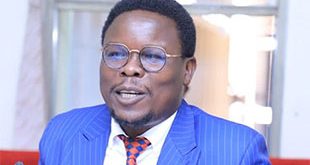How has the issue of the Fort Portal—Kamwenge road project changed the way you intend to do business with the government of Uganda?
Uganda is one of the largest clients of the World Bank and there is a very long history of very close and deep relations with the Bank. We extremely value the relation the World Bank has with Uganda. Don’t forget that Uganda is one of the African countries with whom the bank has a very long series of budget support where a lot of innovations have also been implemented. (However), what we are doing is not just for us but for the people of Uganda because I am sure that none of us wants to have our relatives; our young sisters, daughters, or nieces be in such a situation. So it is not about being difficult or harsh. We are very impressed by the determination of President Museveni to stop this. I understand he has started a national campaign to raise awareness about Gender-Based Violence. It is a complicated issue. This is not an issue we are necessarily used to dealing with but we now have learnt using the experience of Uganda and we will make sure that this kind of thing will not happen again in projects that we are financing. We shall strengthen our work on gender based violence in Uganda through a project that will be aimed at strengthening the capacity of different agencies working on gender policy in the country so that we can really increase awareness and implementation measures.
How do you intend to implement this gender-based project in the country?
The project on gender empowerment will be a separate project and it will involve strengthening the capacity on dealing with Gender-Based Violence across the country. The President has already created a special task force on Gender-Based Violence and we are waiting for the recommendations of the task force which will look at this issue across countries. This project intends to consult as widely as possible about this issue.
This is not in any way to suggest that I condone the unfortunate incidents of the Fort Portal-Kamwenge road project but this is not the first time that the World Bank is dealing with these kinds of challenges. International human rights organisations have accused the World Bank in the past of either being “liable or potentially liable” in funding projects that have led to brutal evictions of communities in Nigeria, Honduras, Kenya, Indonesia, and Guatemala, but we did not see similar reaction from the World Bank in these countries. Why Uganda in particular?
I don’t believe that we have had a similar situation like this one. I am not aware of it. I have never heard of anything of this nature in World Bank projects in Ethiopia or in these other countries you have mentioned. That is not accurate. What we have here (Uganda) seems to be pretty unique among the projects the World Bank has handled and that is why we are so serious because we don’t want it repeated. We don’t want a situation where under-age girls are forced into sexual activities. We were very shocked about it and we don’t want it to happen again. If it happened before, we would have reacted the same way. We need to correct that information.
Going forward, are you satisfied with the way UNRA has restructured?
I have been quite impressed by the way the leadership of UNRA has taken very seriously what we did. They implemented in a relatively short period of time most of the actions that we wanted implemented. There are certain actions that will take a bit more time to implement. We believe that after this exercise, UNRA will be much better equipped in implementing projects and ensuring that the safeguards are implemented properly. The word ‘safeguard’ for us is not a technical word; it means life and well being of people and not destroying the environment. It means the people who have been displaced from their land have been compensated properly; it means ensuring that as you implement development projects, people are not negatively affected and they can continue living their normal lives.
****
editor@independent.co.ug
 The Independent Uganda: You get the Truth we Pay the Price
The Independent Uganda: You get the Truth we Pay the Price



